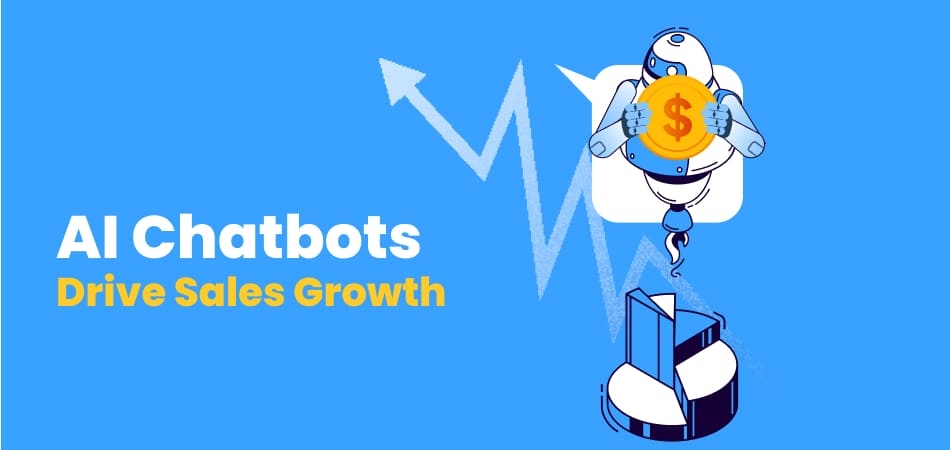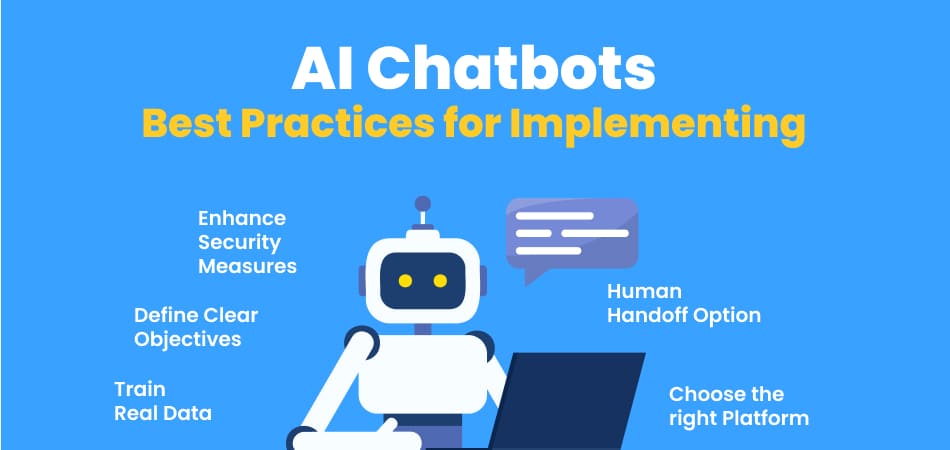The rapid advancement of Artificial Intelligence (AI) has transformed the way businesses interact with customers. AI chatbots have emerged as a game-changer, offering 24/7 support, automating responses, and enhancing customer experience. Whether for e-commerce, SaaS, or service-based industries, AI chatbots can significantly improve customer engagement, streamline processes, and drive sales growth.In this comprehensive guide, we will explore how AI chatbots enhance customer interaction and boost sales, along with practical strategies and a comparative analysis in tabular format.
Understanding AI Chatbots
AI chatbots are software applications powered by artificial intelligence and natural language processing (NLP) to simulate human conversations. They can answer customer queries, provide product recommendations, handle transactions, and offer personalized support.
Types of AI Chatbots
- Rule-Based Chatbots – Follow predefined scripts and answer based on keywords.
- AI-Powered Chatbots – Use machine learning (ML) and NLP to understand and respond intelligently.
- Hybrid Chatbots – Combine rule-based logic with AI for enhanced efficiency.
How AI Chatbots Improve Customer Interaction
1. 24/7 Customer Support
Customers expect instant responses, and AI chatbots provide 24/7 availability, ensuring queries are addressed in real-time. This improves consumer happiness and cuts down on wait times.
2. Personalized Customer Experience
AI chatbots analyze customer behavior, past interactions, and preferences to provide personalized recommendations and support. This tailored experience improves engagement and loyalty.
3. Instant Query Resolution
Unlike human agents, chatbots can handle multiple queries simultaneously, offering instant responses to frequently asked questions (FAQs) and resolving customer issues efficiently.
4. Seamless Multichannel Support
AI chatbots integrate with multiple platforms such as websites, social media, and messaging apps (WhatsApp, Facebook Messenger, etc.), ensuring consistent customer interaction across all touchpoints.
5. Lead Generation & Qualification
Chatbots engage visitors, collect lead information, and qualify prospects by asking relevant questions, helping businesses identify potential customers and move them down the sales funnel.
6. Reducing Human Workload
By automating routine tasks like answering FAQs, processing orders, and handling basic troubleshooting, chatbots free up human agents to focus on complex and high-value interactions.
7. Enhancing Brand Engagement
AI chatbots help brands maintain an engaging presence by sending personalized greetings, reminders, and updates, which fosters customer trust and long-term relationships.
8. Providing Consistent Communication
Unlike human agents, chatbots offer standardized responses, ensuring that customers receive uniform and accurate information across different touchpoints.
9. Handling Customer Complaints Efficiently
AI chatbots streamline the complaint resolution process by quickly identifying issues, offering solutions, and escalating complex problems to human agents when necessary.
10. Data-Driven Decision Making
By collecting and analyzing customer interactions, AI chatbots provide insights into customer behavior, preferences, and pain points, helping businesses improve their services.
How AI Chatbots Boost Sales

1. Guided Shopping Experience
AI chatbots assist customers in finding products, comparing options, and recommending purchases based on their preferences and past behavior.
2. Cart Abandonment Recovery
Chatbots can send reminders and incentives (discounts, free shipping) to customers who have abandoned their carts, increasing conversion rates.
3. Upselling and Cross-Selling
AI-powered chatbots analyze customer preferences and suggest relevant products or upgrades, maximizing revenue per customer.
4. Automated Follow-Ups
Chatbots can send follow-up messages, promotional offers, and order updates to keep customers engaged and encourage repeat purchases.
5. Localized & Multilingual Support
By offering multilingual support, AI chatbots cater to a global audience, enhancing user experience and increasing international sales.
6. Enhanced Payment Processing
Some chatbots integrate with payment gateways, allowing customers to complete transactions within the chat interface, streamlining the purchase process.
7. Boosting Customer Retention
AI chatbots help maintain customer relationships by providing loyalty rewards, personalized deals, and post-purchase support, encouraging long-term engagement.
8. Optimizing Conversion Rates
Chatbots track user behavior and use data-driven strategies to optimize conversion funnels, ensuring higher engagement and increased sales.
9. Reducing Response Time for High-Intent Customers
By quickly engaging visitors who show buying intent, AI chatbots reduce friction in the purchase process, leading to higher conversion rates.
10. Providing a Human-Like Experience
With advancements in AI and NLP, modern chatbots simulate human-like conversations, making interactions more natural and customer-friendly.
Comparing AI Chatbots with Traditional Customer Support
| Feature | AI Chatbots | Traditional Support |
| Availability | 24/7 | Limited Hours |
| Response Time | Instant | Varies |
| Handling Multiple Queries | Yes | Limited |
| Personalization | High | Moderate |
| Cost Efficiency | High | Expensive |
| Human-Like Interaction | Improving | Natural |
| Data Collection & Analysis | Advanced | Manual Effort |
| Scalability | High | Limited |
| Error Handling | Consistent | Variable |
| Multilingual Support | Yes | Limited |
Best Practices for Implementing AI Chatbots

1. Define Clear Objectives
Identify key areas where chatbots can enhance customer service and sales, such as answering FAQs, handling transactions, or collecting leads.
2. Choose the Right Chatbot Platform
Select an AI chatbot solution that integrates seamlessly with your CRM, website, and messaging platforms.
3. Train the Chatbot with Real Data
Feed historical customer queries and interactions into the chatbot’s training model to improve its accuracy and response quality.
4. Ensure a Human Handoff Option
Allow seamless transitions to human agents for complex queries that require personalized assistance.
5. Monitor Performance & Optimize Regularly
Track chatbot interactions, customer feedback, and conversion rates to continuously improve its functionality.
6. Leverage AI Chatbots for Marketing Campaigns
Use chatbots to engage users with promotions, product launches, and event registrations to drive sales.
7. Enhance Security Measures
Implement encryption and authentication protocols to protect customer data and ensure compliance with privacy regulations.
8. Regularly Update AI Models
Continuously refine chatbot algorithms and training data to ensure accurate and contextual responses.
Future Trends in AI Chatbots
- Advanced Conversational AI – Improved NLP will enable more human-like interactions.
- Integration with Voice Assistants – AI chatbots will integrate with Alexa, Google Assistant, and Siri for voice-based support.
- AI-Powered Sentiment Analysis – Chatbots will analyze customer emotions to provide empathetic responses.
- Predictive Analytics for Personalized Interactions – Chatbots will anticipate customer needs based on browsing history and preferences.
- Blockchain Integration for Secure Transactions – Enhanced security features will make chatbot-based transactions safer.
- Emotionally Intelligent AI – Future AI chatbots will recognize and respond to human emotions more accurately.
- AI Chatbots for Employee Support – Businesses will leverage AI chatbots for internal operations, including HR and IT support.
Conclusion
AI chatbots are revolutionizing customer interaction and sales by providing instant, personalized, and seamless experiences. They enhance customer engagement, drive conversions, and optimize business operations. By implementing AI-powered chatbots strategically, businesses can improve customer satisfaction, reduce costs, and scale efficiently.
As technology advances, chatbots will continue to evolve, offering even more sophisticated and human-like interactions. Investing in AI chatbots today ensures a competitive edge in the digital marketplace. If you haven’t already, now is the time to integrate AI chatbots into your customer engagement and sales strategy.



